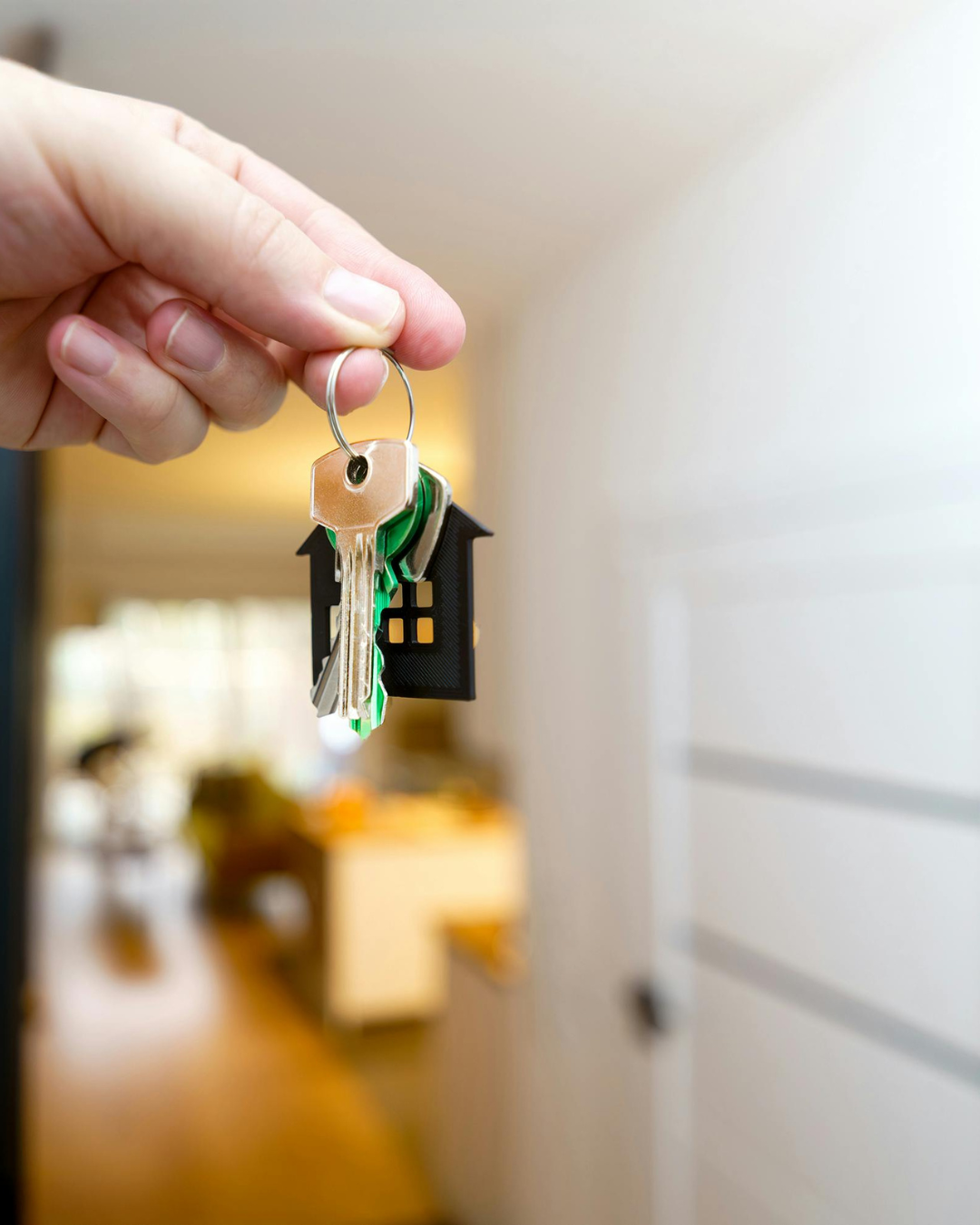SOURCE: Homes
Getting your first offers when selling your home is exciting, especially if there are multiple ones.
While the price is important, it is not the only factor to consider when evaluating offers.
What to watch
“Please don’t solely focus on the price. The terms, closing date, financing, contingencies and more make a difference,” said Thomas McCormack, senior partner and broker for Resources Real Estate, located in Monmouth County, New Jersey.
In a home sale contract, contingencies are conditions that protect buyers by ensuring certain requirements are met before they close on the sale. If contingencies are not met, the buyer could back out and the sale could fall through, leaving the home still on the market. Common contingencies include having a home inspection to ensure there are no major or costly issues and having the home appraised to make sure the sale price is not more than the home value.Another common one is a home-sale contingency, which makes the buyer's offer on your home dependent on their ability to sell their current home.
Since contingencies give buyers more ways to back out of sale, they can be dicey for the seller. Closely look at the contingencies and the offer.
“A higher offer with a lot of contingencies can be riskier than a slightly lower offer with fewer ways for the buyer to back out,” said Andrew Fortune, a real estate broker at Great Colorado Homes, based in Colorado Springs, Colorado.
Extremely high offers that are significantly over asking, like a $600,000 offer on a $500,000 list price, could be riskier if the buyer needs to secure financing. Cash offers and pre-approved loans are more secure, so ask the buyer to provide details on their financing when considering offers.
“Check the buyer’s financing terms and verify with their lender that the preapproval is solid," Fortune said. "Some preapprovals are weak, and those deals fall apart during underwriting.”
Your moving timeline is also an important factor. There likely won’t be a perfect offer, but you can negotiate on what is most important to you.
“Negotiate when the offer is close to your target but missing a few key terms you care about,” Fortune said. “If a buyer offers your asking price but wants a 60-day close and you need 30, counter with a closer date.”
You could also negotiate a rent-back agreement with a buyer, which allows the seller to stay in the home for a determined amount of time. The buyer becomes a landlord to the seller temporarily until the agreed upon move-out date. This can be helpful for sellers who are still working out where they are moving to or while they are in the process of buying.
Checklist to consider offers
Evaluate the offered price
Is this over or under your asking price?
If over, great!
If under, by how much? Is this your only offer?
Does it align with recent sales in your area?
Verify buyer financing
Is the buyer preapproved or prequalified for a loan from a credible lender? Ask for a statement of approval. If only prequalified, consider asking them to get preapproval.
What is the loan type: conventional, Federal Housing Administration or Veterans Affairs? Have your real estate agent review loan approvals.
Did they provide proof of funds or a down payment?
Cash offers? Verify proof of funds for cash offers.
Considering contingencies
Home inspection: This is common for buyers to request to have the home inspected for issues. If issues are revealed, the buyer will likely request repairs, negotiate credits or walk away from the sale. Sellers can get a pre-inspection to uncover problems early or decide how much they are willing to negotiate on repairs.
Appraisal contingency: Lenders might request an appraisal to make sure that the home’s value matches the offer price. If the home is being overvalued, then the buyer might ask to lower the price. Be careful when pricing and be prepared to negotiate.
Financing contingency: This protects buyers if they are unable to secure a loan. Even preapprovals fall through, so if their financial situation changes and the loan is not granted, this contingency allows buyers to back out.
Sale of another property: For buyers who are also selling a home, they might have this contingency to ensure they are able to sell their current home before closing on the new house. This can get complicated, but look at their timeline and if their home is close to being sold as well.
Review earnest money deposit
Amount offered? Typically, people put down 1% to 3% of the sale price.
Is it competitive for your market? In more competitive markets, more earnest money could indicate a more secure sale.
Consider closing timeline
Does the proposed closing date fit your needs?
Is the buyer flexible if delays occur?
Would they consider a rent-back agreement?
Look at additional terms
Requests for seller concessions?
Home warranty included?
Personal property included/excluded?
Assess buyer motivation
Is this a primary residence or investment?
Any signs of urgency? Relocation?
How to handle multiple offers
Having more than one offer is great because it gives you more leverage to negotiate with buyers. The downside is you have to juggle the different offers and terms at once.
“Create a deadline for all offers so you can review them at the same time instead of one by one,” Fortune said. “This keeps the process organized and prevents endless back and forth.”
Have a spreadsheet of all the offers to compare them side by side. Evaluate prices, terms, contingencies, closing dates and earnest money to see what works best for you.
“Seeing everything laid out helps you spot the strongest deal quickly,” Fortune said. “You can accept the best offer, counter one while holding the others or ask all buyers to submit their highest and best by a certain time. Requesting highest and best creates urgency and often improves terms without you doing extra work.”
To garner multiple offers, you must make the property as available as possible for potential buyers to see.
“My advice: Provide pre-marketing time to get the property out to the public before it starts showing,” McCormack said. “Provide enough time for showings. Allow enough time for everyone to get their offer in. This does not mean stalling or delaying unnecessarily. This means communicating so everyone knows the rules of the offering period.”
What if you only get one offer?
If you only have one offer, you are more limited in bargaining power with negotiations. If you don’t like the one offer, it can be hard to decide what to do — accept or reject.
“You realize you are in a moment in time and as a seller it is your right to refuse and kick the can down the road. But guess what? You may not find anyone subsequently willing to make an offer, let alone at the price you want or even the same price as you are now possibly declining,” McCormack said.
Markets change and the future is never clear. It could be a gamble to reject an offer, but that doesn’t mean it won’t pay off.
“I would say a good agent will have a keen understanding of the local marketplace, the activity, pulse and be able to gauge if there’s likely to be competitive buyers in the marketplace right now,” McCormack said.
Offers are the starting points for negotiations so don't discount any that are under the asking price.
“Rejecting offers outright instead of countering kills negotiations before they start. Even if an offer feels insulting, a counteroffer keeps the door open,” Fortune said.
What if you get no offers?
This can happen. If you don’t get any offers after 60 days on the market, you need to revisit your home’s marketing.
“Keep the house on the market. Adjust the price. Change up the photos, the marketing, the approach,” McCormack said. “There are always new buyers entering the market. The second you pull yours is the moment you may have just ‘disappeared’ just as your perfect buyer just entered.”
It could just be a stale housing market, but maybe there is something wrong with the property that could be improved. Before considering pulling the house off the market, look to see if there are things that can be done to bring buyers in.
McCormack's key factors to consider when a house is not selling:
Has the property received maximum exposure through marketing efforts in digital, email, social, print and otherwise?
Is your agent equipped with the experience and current market knowledge to adequately assess what trends exist in the current marketplace which may impact your listing?
Was the property priced correctly from the start?
How to handle getting emotional letters
In competitive markets or when a buyer really wants a house, you may receive a letter pleading for their offer to be accepted. McCormack described these appeals as “love letters” and says to be careful.
“For some sellers, yes, they’ll respond to the heart-tugging,” McCormack said. “For others, sellers don’t like the feeling that they’re being manipulated. And sometimes the description itself might have the reverse effect.”
If it’s important for you to have a young family buy the home, then maybe the letter is compelling. Have a conversation with your real estate agent on how you would like to handle any emotional appeals.
“The other issue for sellers is fair housing. If you as a seller disqualify or decline a solid offer and simultaneously are aware that the buyer is a member of a protected class — religion, race, creed, sexual orientation — you may be exposing yourself to claims of fair housing violations,” McCormack said. “This may not be the case, but the objectivity of the offer, its presentation and its reception may have been influenced by the love letter.”
Decide if you want to see any letters that are submitted with offers. If so, connect with me and I can help you decide if there is any revealing information that could cause issues.
SOURCE: Homes





